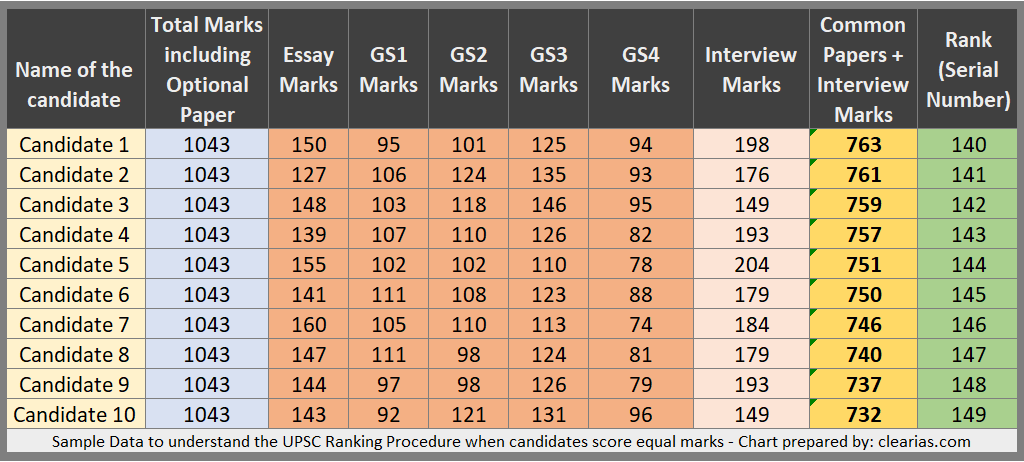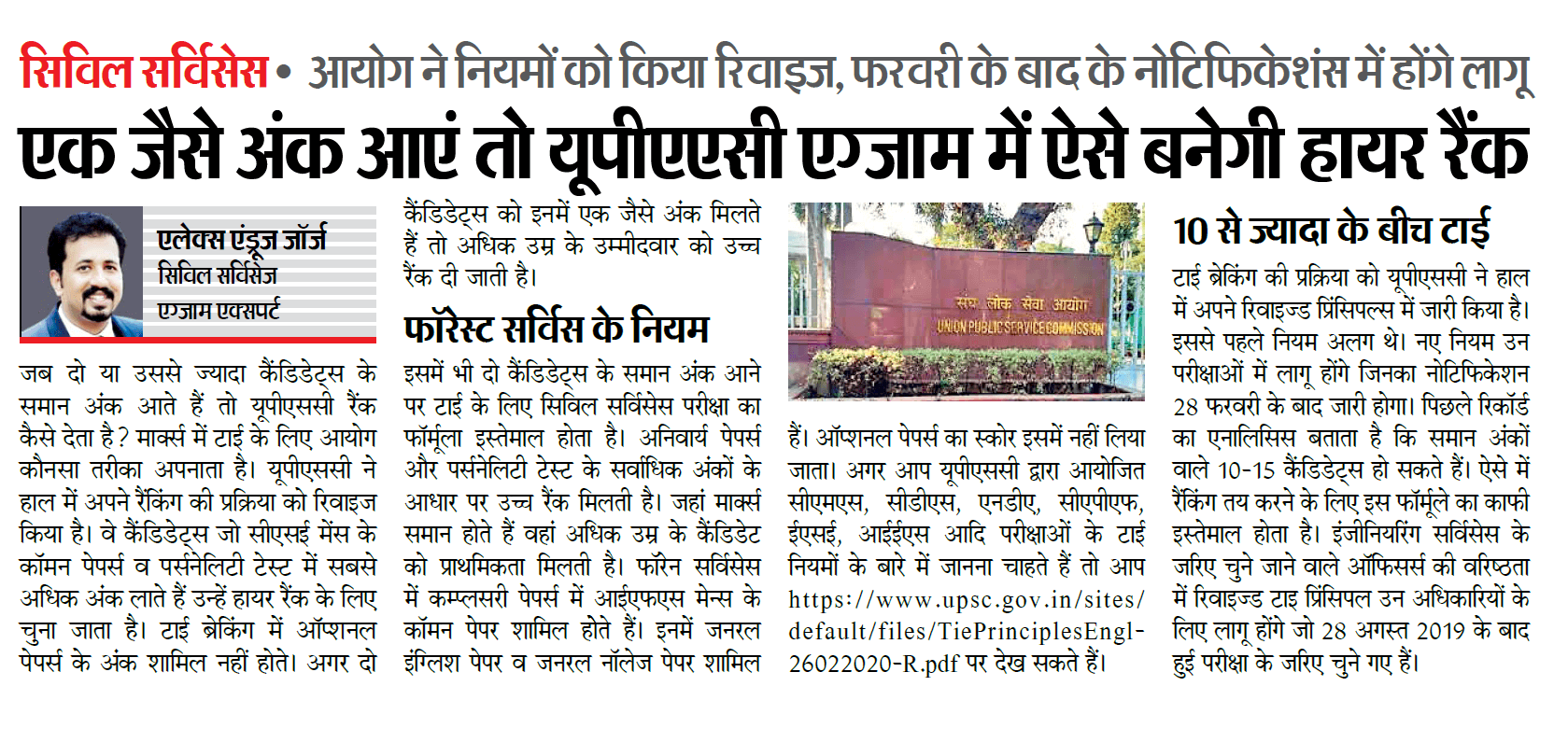
If the overall marks of two or more candidates are equal, how is relative merit between such candidates decided by UPSC? Who will be given a higher rank?
Have you ever wondered about this situation?
UPSC Ranking Methodology: if two candidates score equal marks
The case of equal marks often arises in various exams conducted by UPSC like Civil Services Examination. In fact, there maybe 10 or 15 candidates with the same mark. Will UPSC award the same rank to all those who score equal marks?
No.
UPSC then apply ‘Tie-breaking’ principles to decide inter-se merit among candidates having the same overall marks. Then, the commission will calculate ranks based on certain criteria.
The tie-breaking principle in UPSC Civil Services Exam (CSE)

In UPSC Civil Services Exam, wherever two or more candidates have secured equal aggregate marks, these tie(s) is/are resolved in accordance with the principles approved by the Commission.
- The candidate securing more marks in the Compulsory Papers and the Personality Test put together is to be ranked higher.
- In a case where the marks mentioned above are equal, the candidate senior in age is to be ranked higher.
By Compulsory papers in CSE, UPSC means the common papers in CSE Mains. This includes 1 Essay Paper and 4 General Studies Papers. Optional Papers are not counted for tie-breaking.
The tie-breaking principle in UPSC Forest Service Exam (IFoS)
In UPSC Forest Services Exam, wherever two or more candidates have secured equal aggregate marks, these tie(s) is/are resolved by adopting the same formulae as in Civil Services Exam ie.
- The candidate securing more marks in the Compulsory Papers and the Personality Test put together is to be ranked higher.
- In a case where the marks mentioned above are equal, the candidate senior in age is to be ranked higher.
By Compulsory papers in IFoS, UPSC means the common papers in IFoS Mains. This includes 1 General English Paper and 1 General Knowledge Paper. Optional Papers are not counted for tie-breaking.
Tie-breaking principles in various exams conducted by UPSC
If you wish to know the tie-breaking principle used by UPSC in exams like CMS, CDS, NDA, CAPF, ESE, IES etc, refer this PDF link.
Applicability of the revised procedure

You may note that the above-mentioned tie-breaking procedure is the revised principle notified by UPSC on 26-02-2020. The earlier conditions to tie-breaking were different.
These revised Tie Principles would be applicable for the Examinations/RTs to be notified after 28.8.2019 (i.e., the date of approval by the Commission).
In respect of inter-se seniority of officers nominated through Engineering Services Examination, the revised Tie Principle would be applicable for the officers nominated through Engineering Services Examinations which would be notified after 28.8.2019.

Conclusion
Thus, as we have seen above, for UPSC CSE exam – candidate securing more marks in the Compulsory Papers (Essay, GS1, GS2, GS3, and GS4) and the Personality Test put together is to be ranked higher. Marks of Optional Paper is not given weight in this round.
In a case where the marks mentioned above are equal, the candidate senior in age is to be ranked higher.






Sir, it is requested to please provide order or office memorandum regarding Tie-breaking principles in various exams conducted by UPSC .
Thanku
If date of birth of the both the candidates who have scored equal marks is same, and no one is senior to other, then how UPSC is going to decide. Has UPSC apprehended this situation? If yes, it has not been notified and when they are going to do. If no, they must sit again to discuss among themselves within a few days.
@Bhaskar Rao – There was a third condition earlier. Now UPSC has taken it off. Please find the earlier principle (before 2020) here:
(i) Candidate securing more marks in the Compulsory Papers and the Personality Test put together is to be ranked higher;
(ii) In the case where the marks mentioned at (i) above are equal, the candidate senior in age is to be ranked higher; and
(iii) In the case where the (i) and (ii) above are the same, then the candidate getting more marks in the compulsory papers is to be ranked higher.
oh well !! very much useful article this actually helps the aspirants to focus on everything …